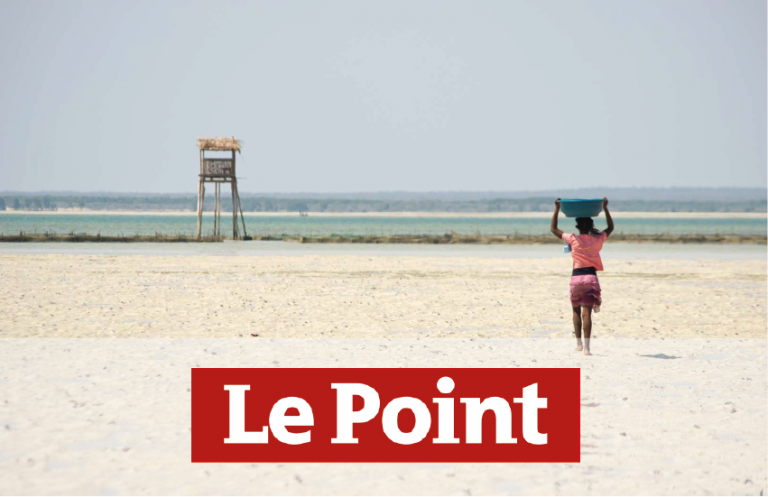In a recent article in Le Point, journalist Sylvie Rantrua explores an unusual yet valuable commodity that is improving the lives of coastal communities in the West Indian Ocean (WIO) – the sea cucumber. Once they have been brushed and dried (to become ‘trepang’) sea cucumbers are exported and sold at a high price, particularly on the Asian market. This high market demand is putting severe pressure on wild sea cucumber fisheries. An aquaculture model has been developed in southwest Madagascar that transforms this pressure into a business and livelihood opportunity, linking commercial hatcheries and community based ranching.
As is mentioned in the article, Blue Ventures partnered with Indian Ocean Trepang (IOT), a commercial aquaculture company, and its sister company, Ocean Farmers, an organisation already working with isolated communities farming seaweed, to introduce sea cucumber aquaculture to fishing communities in Madagascar. The partnership worked both ways; IOT was able to establish a sea cucumber hatchery as a commercial venture, whilst Blue Ventures and Ocean Farmers were able to support coastal people in managing their own aquaculture businesses as an alternative and sustainable livelihood.
The project was first implemented in Tampolove, a coastal village in the Bay of Assassins, southwest Madagascar, as it was already part of Blue Ventures’ first locally managed marine area (LMMA), Velondriake. As a result of the aquaculture programme developed by Blue Ventures, IOT and Ocean Farmers, the communities are now contributing to the international market and reaping the rewards. Incomes have doubled for sea cucumber farmers, who are mostly women and are now more able to pay school fees for their children. They enjoy more financial capital, but also more social capital as their sought-after ability to breed sea cucumbers gives them status within the home and the community.
Due to the success of this aquaculture project, sea cucumber farming is now being explored throughout Madagascar and further afield in the WIO, including Zanzibar, where Blue Ventures has carried out a sharing learning exchange in farming the sea. Aquaculture is increasingly becoming a vital resource for remote tropical fishing communities to improve their socio-economic opportunities and become grassroots leaders in marine conservation and biodiversity efforts.
“Sea cucumber farming is one of the few models of aquaculture that I know of which has a net positive impact. The reintroduction of these animals in over-exploited areas only results in winners ” – Timothy Klückow, Blue Ventures associate
Read the full article ‘Concombres de mer: ce nouvel or de l’océan Indien/Sea cucumbers: a new gold from the Indian Ocean’
Explore Tampolove’s sea cucumber farms with some of our expedition volunteers.
Photo: Antoine Rougier























